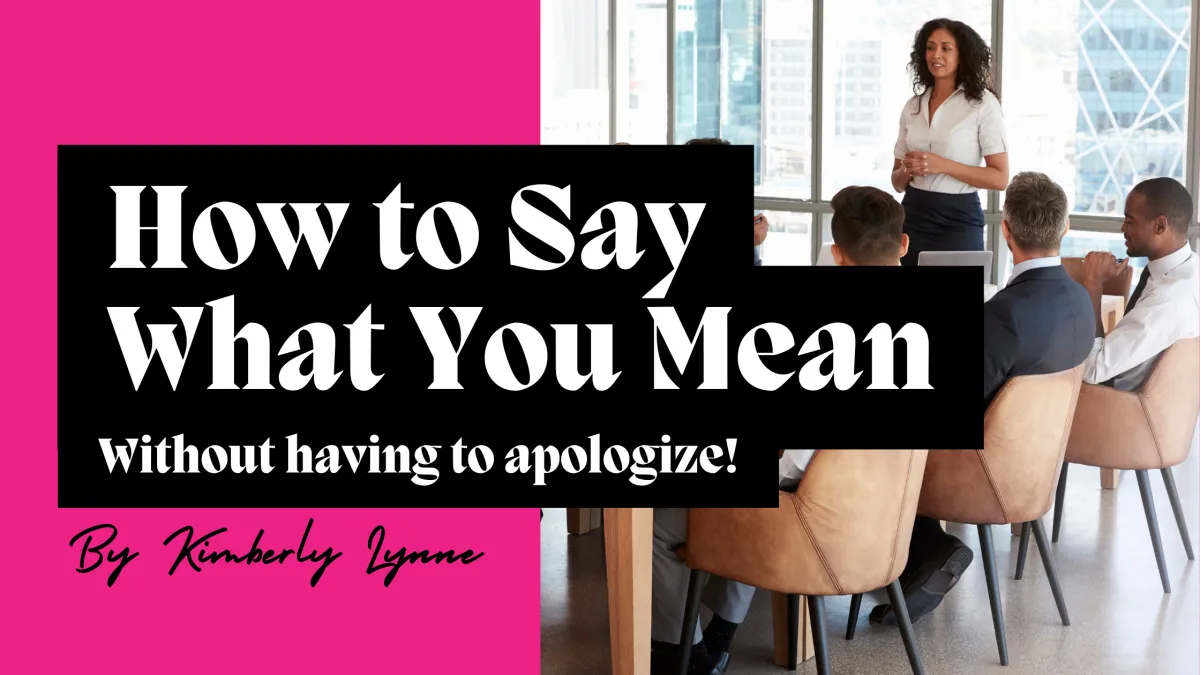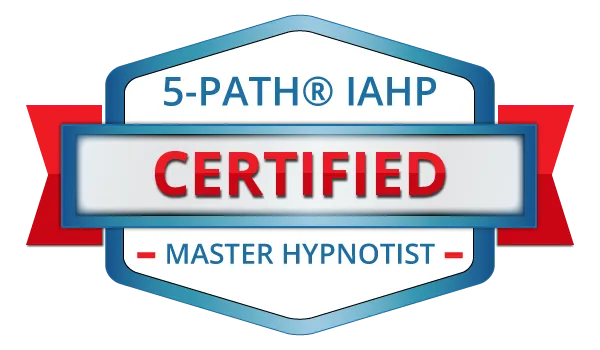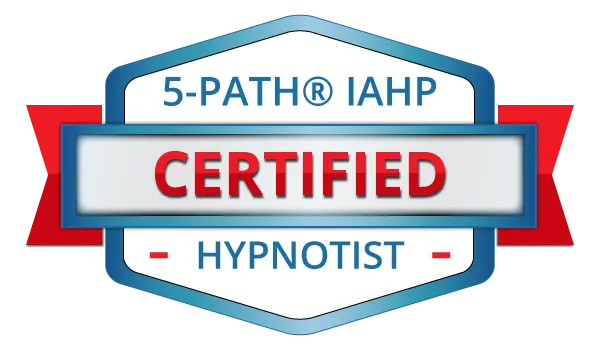
How to Stop Over-Apologizing and Speak Assertively
The Over-Apologetic Woman
Have you ever caught yourself saying “I’m sorry” for something that didn’t actually require an apology? Perhaps you apologized for asking a question in a meeting, for taking up space during a conversation, or even for brushing past someone lightly. If this sounds familiar, you're not alone.
Many women find themselves over-apologizing, sometimes to the point that it becomes a reflex rather than a thoughtful response. While being considerate is admirable, habitual apologizing can chip away at your confidence and diminish the impact of your words.
This isn’t just a quirky habit. It’s often rooted in societal expectations placed on women to be accommodating, empathetic, and inoffensive at all times. But it doesn't have to be this way. Learning how to say what you mean without apologizing unnecessarily can empower you to communicate clearly, set boundaries effectively, and express yourself with confidence.
The Societal Expectations Placed on Women
From an early age, women are subtly, and sometimes overtly, conditioned to take responsibility for others' feelings, mistakes, and comfort. These societal expectations often come with conflicting messages.
Be ambitious, but don’t be pushy.
Be assertive, but make sure you don’t upset anyone.
Show confidence, but don’t come across as conceited.
Girls are often praised for being polite, helpful, and kind. While these qualities are valuable, they can also lead to a heightened sense of responsibility for how others feel. According to research, women tend to perceive more situations as requiring an apology compared to men. This may stem from a socialized expectation for women to continuously prioritize others’ needs.
For many, this results in a habit of hedging their speech with qualifiers or leading statements such as "I'm not sure, but..." or "Sorry to bother you, but..." These linguistic patterns dilute the speaker's authority and can make even the most assertive points sound hesitant.
The Impact of Over-Apologizing
Over-apologizing can have significant consequences, both personally and professionally.
When you start statements with an unnecessary “I’m sorry,” it disrupts the flow of communication. The focus shifts away from your message and onto the apology, often prompting the other person to reassure you before the conversation can continue naturally.
It can also weaken your authority. Leading with an apology puts you in a less confident position, making it harder for others to take your ideas seriously. This is especially true in professional contexts, where confidence is key.
Additionally, unnecessary apologies send the wrong message. They can suggest, even subconsciously, that you feel guilty for taking up space or asking for what you need. Over time, this pattern can contribute to feelings of inadequacy and undermine your self-esteem.
This habit often stems from a fear of criticism, a desire to avoid conflict, or simply because over-apologizing has become a verbal tic. Breaking the habit can transform both how others perceive you and how you feel about yourself.
How to Say What You Mean Without Apologizing
Breaking the habit of over-apologizing starts with intentional communication. Here are strategies to help you assert yourself while staying respectful and clear.
Recognize Your Apology Patterns
Pay attention to when and why you say "I’m sorry." Reflect on whether the apology is necessary or if it’s rooted in habit. For example, ask yourself:
Did I actually do something wrong?
Am I apologizing just to fill silence or appear polite?
Self-awareness is the first step to change.
Replace Apologies with Gratitude or Neutral Phrasing
Instead of saying, “Sorry for keeping you waiting,” try, “Thank you for your patience.” Gratitude acknowledges the situation without putting you in a one-down position.
Stick to Direct Communication
Focus on clarity over qualifiers. Instead of “I think this might work,” say, “This will work because…” Use confident speech patterns to communicate your ideas and decisions effectively.
Practice Assertive Boundary-Setting
If someone crosses a line, it’s essential to address it without cushioning your words unnecessarily. For example:
Instead of “I’m sorry, but that makes me uncomfortable,” say, “That makes me uncomfortable. I’d appreciate it if you could stop.”
Respectful does not mean passive.
Use Positive Body Language
Your posture, tone of voice, and facial expressions can reinforce your words. Maintain eye contact, use a steady tone, and project openness to show confidence.
Pause Before You Speak
If you feel the urge to apologize unnecessarily, take a deep breath and pause. Ask yourself, “Is this apology adding value, or can I say what I need without it?”
Embracing Unapologetic Authenticity
Learning to say what you mean without apologizing goes beyond simply changing your language—it’s about unlearning deeply ingrained habits and stepping into your authentic self. There’s a time and place for saying sorry. Genuine apologies that acknowledge harm are powerful and meaningful, and by saving them for when they truly matter, you give them greater weight.
To break the habit of over-apologizing, it’s important to reflect on why you feel the need to apologize excessively. Are you worried about being perceived as rude or difficult? Challenging these internalized beliefs can help you move forward. Changing long-held habits takes time, so celebrate small victories along the way, like catching yourself before an unnecessary apology or successfully setting a boundary. Surrounding yourself with a supportive community can also make a big difference—whether it’s joining groups or working with mentors who encourage you to speak and live unapologetically, having support can help you build confidence.
Confident Communication Starts Here
By learning how to communicate assertively, you can strengthen your relationships, build your confidence, and command respect without feeling the need to apologize for simply existing. Remember, your voice matters, and it’s time to use it without hesitation.
If you’re ready to take the next step in your personal growth, schedule a consultation with me today. Together, we’ll work to help you unlearn the habits that hold you back and discover the power of clear, unapologetic communication.





















